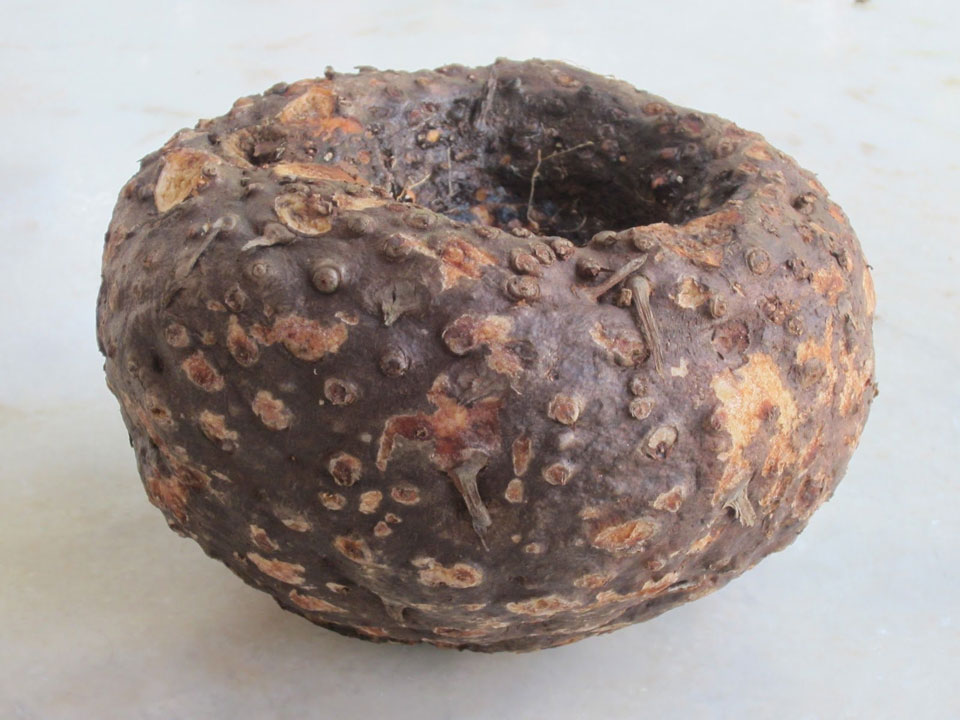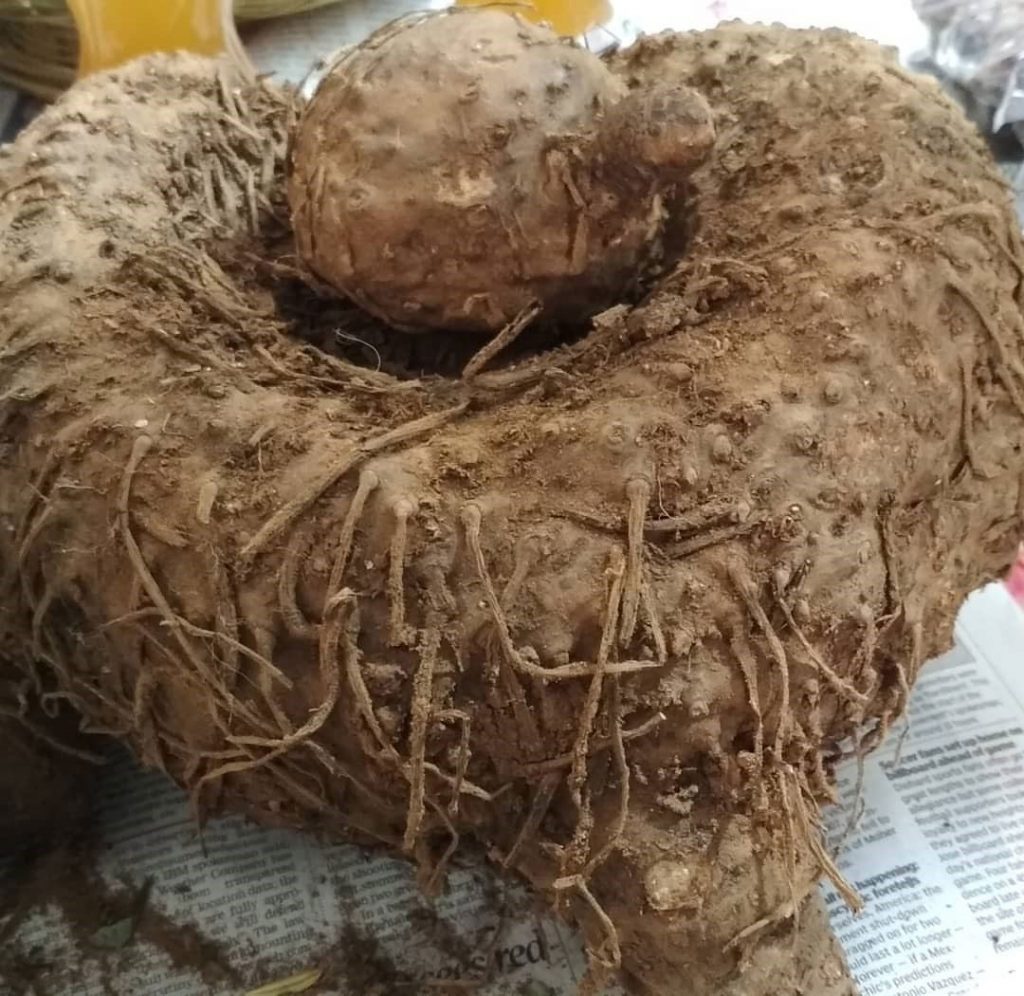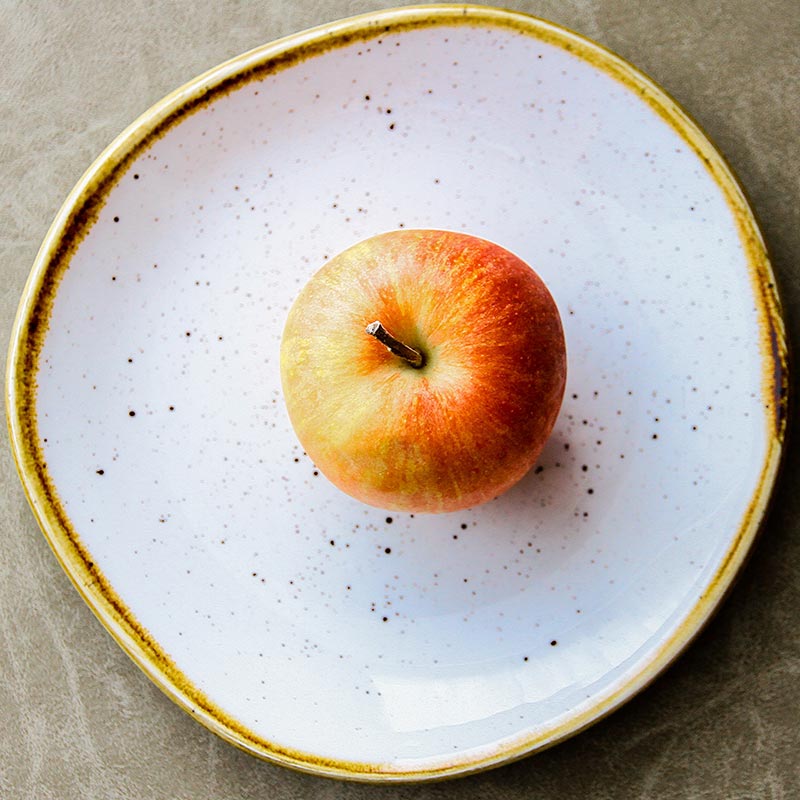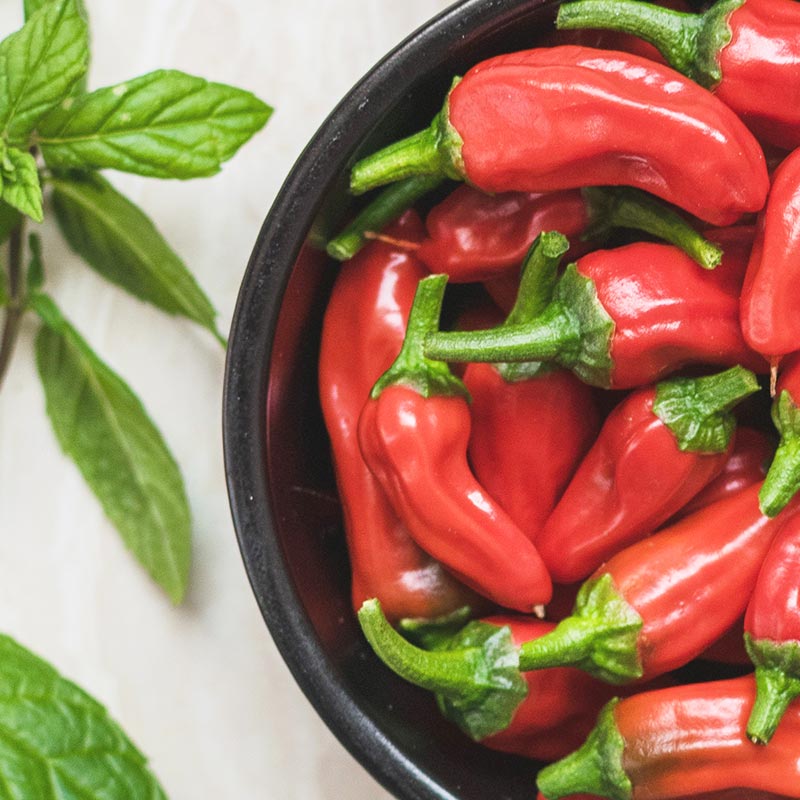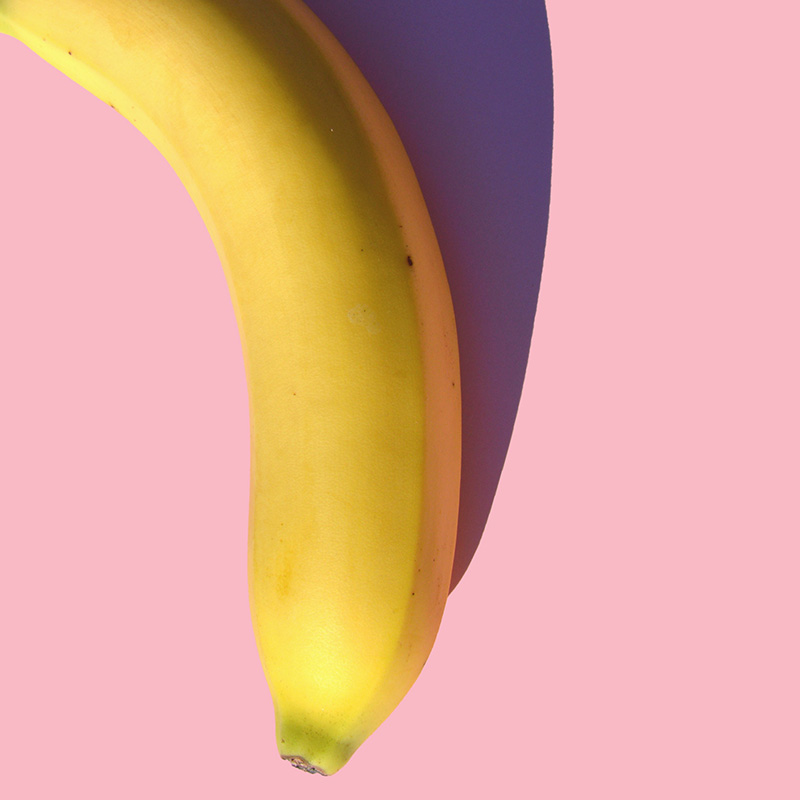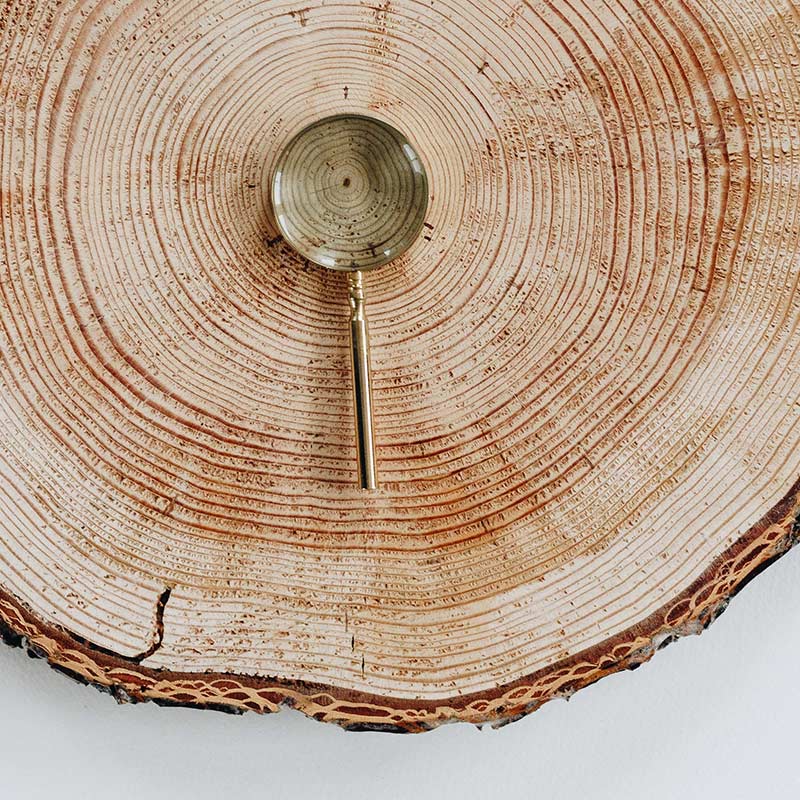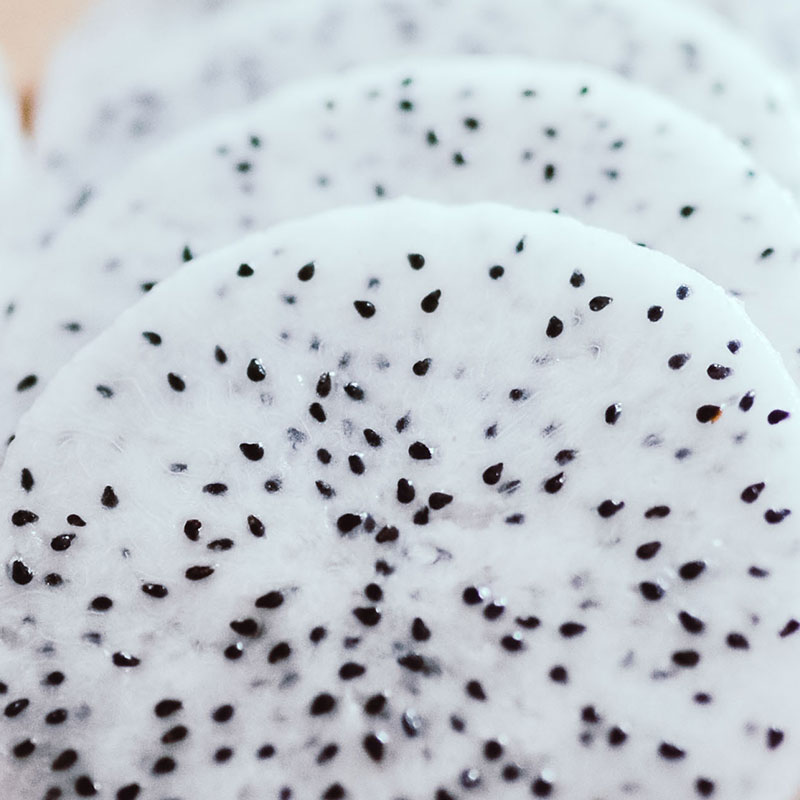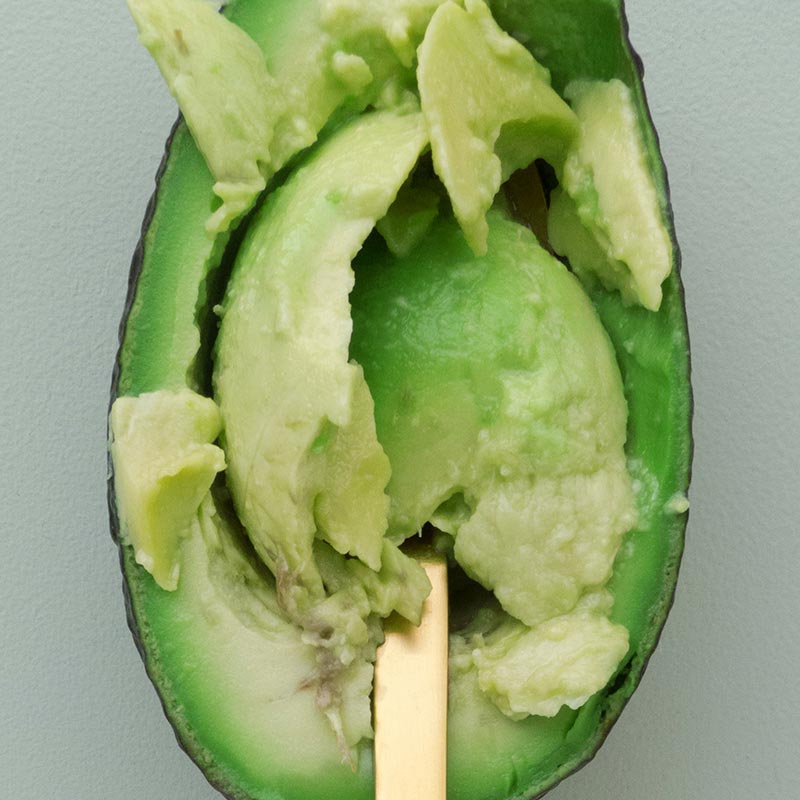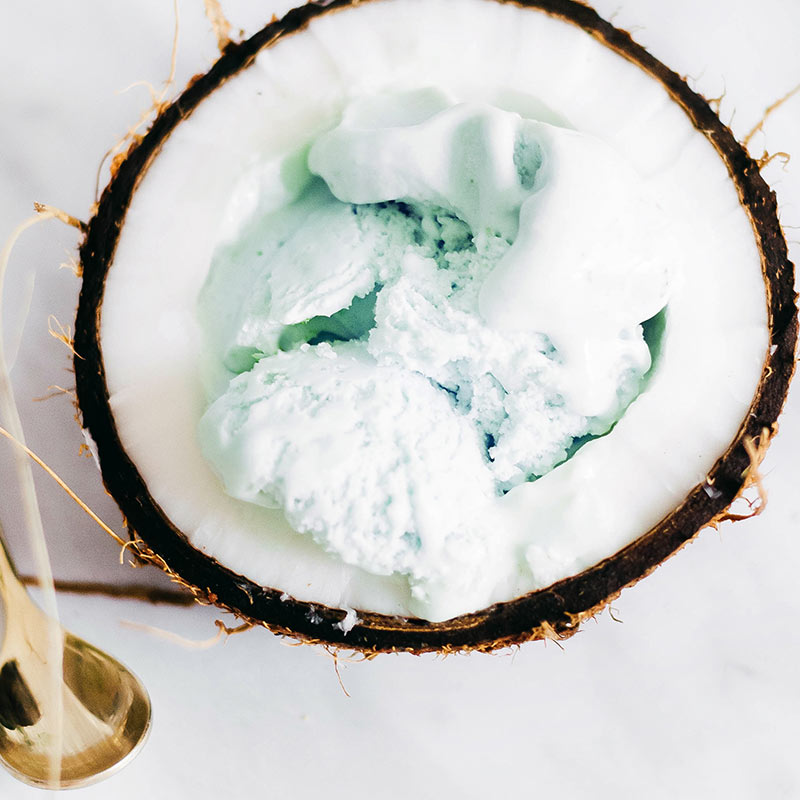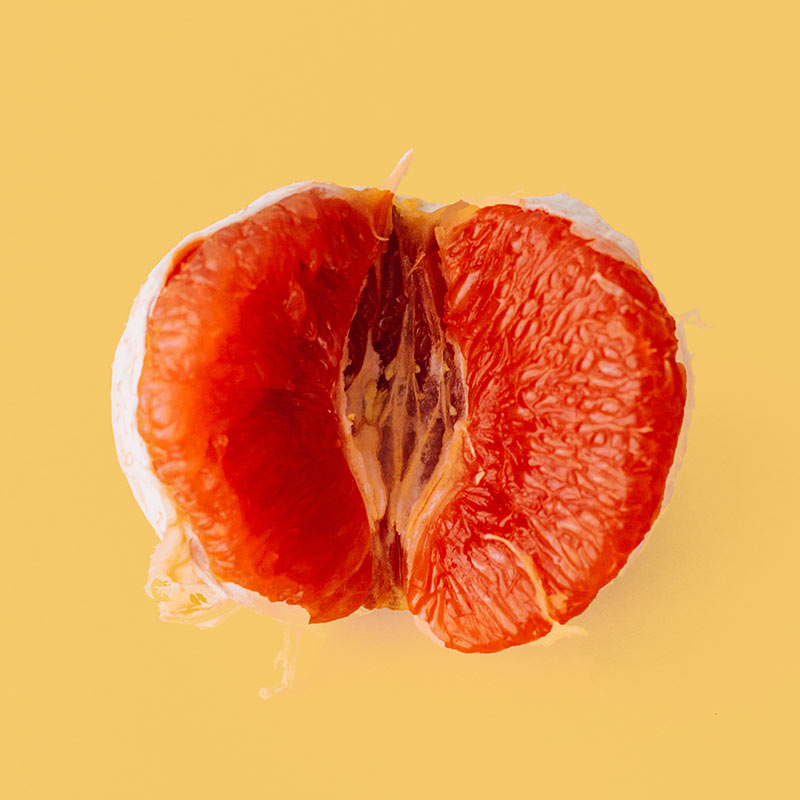Suran, or Elephant yam, is the edible bulb or corm of a very unique looking single-stalked, flowering plant. After a year underground, the corm develops a unique flower with a central flowering stalk encircled by one large, maroon petal and topped with a similarly colored bulbous knob. The stalk can reach up to one meter in height. Once the flower dies, the corm produces one or two tall, green and white spotted stalks topped with several leafy branches. Suran are unearthed once the leaf stalk has died away. The root is round and compressed with a depression on top where the stalk was removed. When harvested, Suran can measure roughly 30 centimeters wide and 20 centimeters tall. A single Suran can weigh as much as 8 pounds, with some tubers weighing almost 30 pounds. Uncultivated Suran may have smaller cormlets attached and may have rootlets growing from its rough surface. The dark brown, almost black skin of the Elephant yam is bark-like but thin enough to be peeled. Its beige colored flesh has a texture like that of a sweet potato, crisp and firm. Suran has an earthy flavor that can also be nutty with a minimal amount of sweetness.
Seasons/Availability
Suran, or Elephant yam, is available year-round in tropical climates, with a peak season in the late fall.
Current Facts
Suran (pronounced sue-ran) is a large tuber also known as Elephant yam. Botanically, the plant is classified as Amorphophallus paeoniifolius and is unrelated to the common yam, which is classified as Dioscorea. It is known in England as the Elephant Foot yam for its somewhat elephantine hoof-like appearance. In China Suran is called Cho mo yu in Chinese and Pungapung in Tagalog. The Elephant yam’s unique flower earned it the nickname “stinky lily” or “death flower” because of the unusual smell the flower emits just after fully bloomed. Its appearance and its utility have made it a popular and commercially successful plant to grow throughout its native region. Suran is a popular ingredient in Sri Lanka and in India, where it is used in curries and koftas in the northern part of the country.


